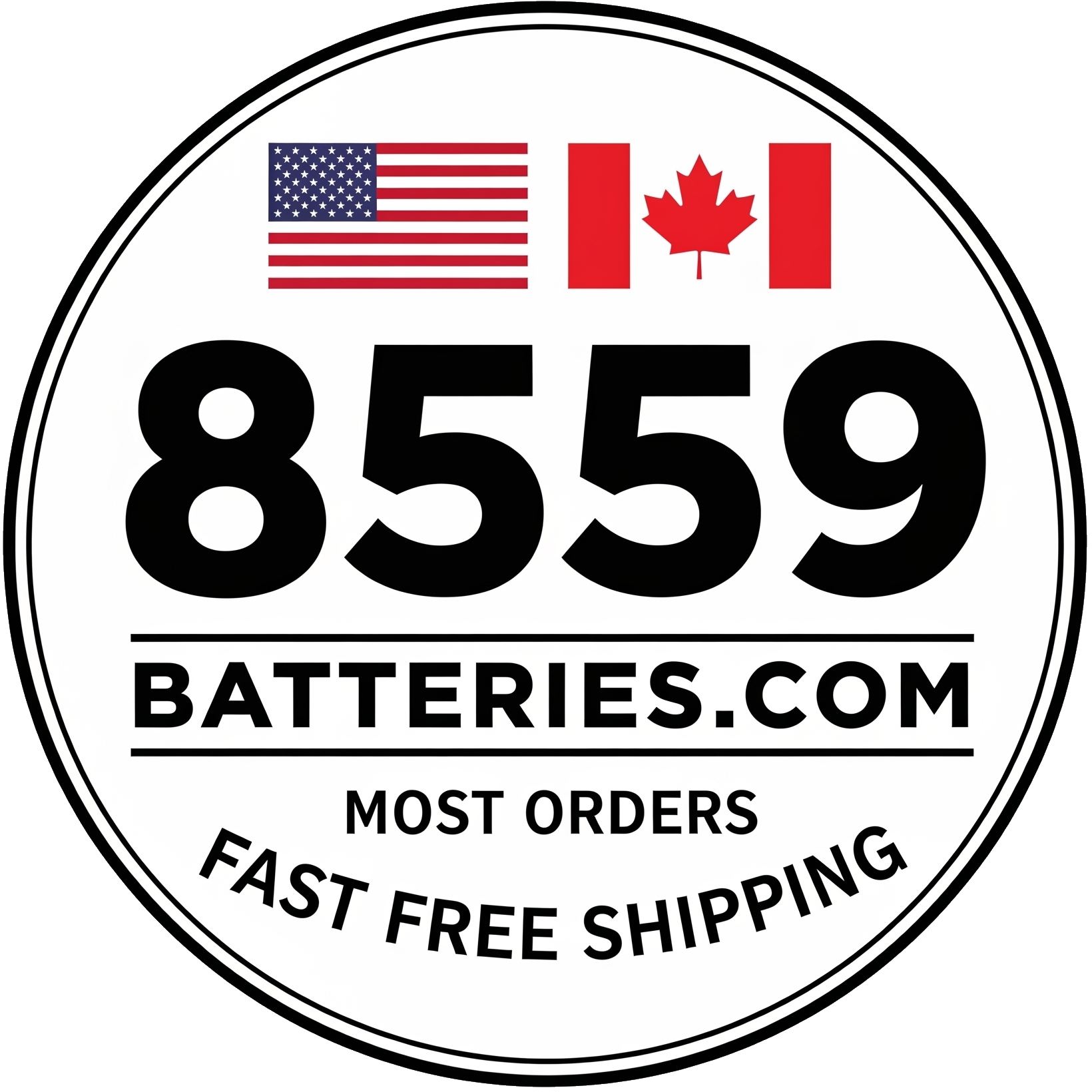Shop Products in USA

Auxbeam
H4Pro Tire Inflator Portable Air Compressor,150PSI 2 in 1 Rechargeable 5200mAh Car Tire Inflator Portable 4 Preset Inflation Modes 12V Air Pump With LCD Screen for Car, Motorcycle, Bike, Ball
4.10
(81 reviews)
$22.49
Delivery Wed, Sep 10 Ships to Canada
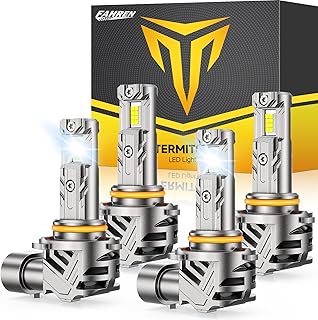
FAHREN
9005 9006 Bulbs Combo, 60000LM 900% Super Bright 9005 9006 Off-Road Use or Fog Light Bulbs, 6500K White Quick Install No Adapter Needed, Pack of 4
4.70
(343 reviews)
$49.99
Delivery Wed, Sep 10 Ships to Canada
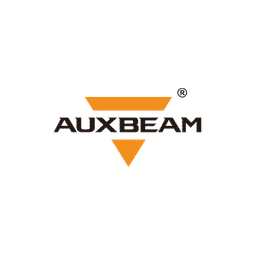
AuxBeam
AuxBeam designs LED lighting and control systems for trucks, SUVs, UTVs/ATVs, motorcycles, vans, overland rigs, and work vehicles. The range includes light bars, pods, fog and driving lights, scene/work and rock lights, whip and chase lights, plus headlight conversions, switch panels, harnesses, relays, and mounts. Products are built for harsh use with sealed housings and practical wiring options, making it easier to plan, install, and control multi-zone lighting on and off road.
About AuxBeam
AuxBeam Vehicle Lighting and Switch Control: What to Buy and How to Set It Up
AuxBeam offers a complete ecosystem for auxiliary lighting and clean power control. Use this guide to choose the right lights, size wiring correctly, and configure a reliable setup for daily driving, trails, job sites, or overland travel.
What AuxBeam Makes
- Light bars (straight/curved; single/dual row)
- LED pods and cubes (spot, flood, combo, fog)
- Fog and driving lights (including selective yellow options)
- Scene and work lights (wide, even illumination)
- Rock lights (single color and RGB)
- Chase and whip lights (rear visibility and identification)
- LED headlight conversion bulbs
- Switch panels (multi-gang), relay modules, fused distribution blocks
- Harnesses, mounts, brackets, lens covers, and accessories
Who This Brand Fits Best
- Overland and trail builds needing zone control and weatherproof wiring.
- Work trucks and vans requiring reliable scene/work lighting with simple serviceability.
- UTV/ATV riders who need compact, high-vibration-resistant lights and quick mounts.
- Daily drivers wanting compliant fog/driving options plus clean installs.
How to Choose Your Lights
| Pattern | Best Use | Typical Mount | Notes |
|---|---|---|---|
| Spot | Long-range visibility at speed | Front bumper, grille, roof | High candela; aim slightly down to reduce glare |
| Flood | Shoulders, ditches, near-field | A-pillars, bumper corners | Wide beam; pair with spot for balance |
| Combo | Mixed terrain and speeds | Light bars (front) | Spot center + flood edges for versatility |
| Fog (SAE) | Rain, snow, dust; on-road legality | Low bumper/factory fog location | Selective yellow reduces backscatter |
| Scene/Work | Camp, loading, repairs | Rack sides/rear, bumper rear | Even wall of light; low glare |
| Rock | Wheel placement and obstacles | Wheel wells, underbody | White/amber for function; RGB for events |
| Chase | Rear visibility in dust/trains | High rear, rack, tire carrier | Multiple flash patterns improve visibility |
Key Specs to Compare
- Lumens vs candela/lux: Lumens = total output; candela/lux indicate usable distance and intensity. For distance, prioritize candela and beam shots.
- Beam distance: Look for a 1 lux distance rating (e.g., 300–600 m) to compare reach.
- Power and current draw: Many bars/pods draw 2–15 A per circuit at 12 V. Confirm before sizing wire and fuses.
- Voltage range: Most auxiliary LEDs run 9–32 V for 12 V/24 V systems.
- Ingress protection: IP67/68 indicates dust-tight and water-resistant/submersible designs.
- Color temperature: 2700–3500 K (selective yellow) aids foul-weather contrast; 5000–6500 K (white) looks crisp in clear air.
- Compliance: For road use, look for markings that indicate relevant standards (e.g., SAE J583 fog, SAE J581 driving). Use non-compliant products off-highway only.
Quick Build Recommendations
Daily Driver + Weekend Trails
- SAE fogs in selective yellow in factory locations
- Compact ditch pods (flood) on A-pillars
- Slim single-row combo bar in grille for minimal wind noise
Overland & Camping
- Combo-beam bar low on bumper or rack for slow trail work
- Rear scene lights for camp setup and reversing
- Rock lights (white or amber) for obstacle spotting and steps
Work & Utility
- High-output scene/work lights on rack sides and rear
- Chase light for roadside visibility
- 6–8 gang switch panel to zone control by task (front, side, rear, underbody)
Wiring and Control Basics
- Switch panels: Commonly offer 6–8 circuits with fused, relay-controlled outputs. Typical per-channel limits are 10–30 A; check your panel’s rating.
- Fuse placement: Place the fuse within 6–12 inches of the battery feed on each circuit or at the distribution block.
- Wire gauge: As a rule of thumb at 12 V—up to 10 A use 16–14 AWG, 10–20 A use 14–12 AWG, 20–30 A use 12–10 AWG; increase gauge for long runs to reduce voltage drop.
- Connectors: Weather-sealed DT/Deutsch-style or equivalent; strain relief and loom reduce failures.
- Grounding: Use clean chassis grounds or a ground bus. Star washers help bite through paint; apply dielectric grease.
- Vehicle electronics: Some vehicles monitor bulbs (CANBUS). For headlight conversions or DRLs, use decoders or resistors when needed to avoid errors or hyperflash.
Example load plan
Front combo bar 10 A, fog pair 6 A, ditch pods 6 A, rear scene 4 A, rock lights 2 A. Total: 28 A. Use a panel with ≥40 A overall capacity, assign each circuit to a dedicated fused output, and feed the panel from a 60 A fused main line.
Battery runtime estimate
At 12 V, a 120 W bar draws ~10 A. On a 100 Ah AGM house battery, budget only 50% usable to preserve lifespan: 50 Ah / 10 A ≈ 5 hours. Lithium (LiFePO4) often allows 80–90% usable; 80 Ah usable / 10 A ≈ 8 hours. Actual runtime varies with temperature and wiring losses.
Installation Checklist
- Plan circuits and switch labels (front spot, front flood, fog, side, rear, underbody, chase).
- Measure mounts and confirm bracket compatibility before ordering.
- Size wire and fuses per current and run length; route away from heat/motion.
- Drill and mount with thread locker; isolate dissimilar metals to prevent corrosion.
- Aim lights on level ground at night; set fogs low and wide, bars slightly below horizon.
- Function test each circuit and wiggle-test harnesses before final loom and tie-down.
Maintenance
- Clean lenses regularly; dust film can cut output dramatically.
- Re-torque mounts every 3–6 months; check for cracks or fatigue.
- Inspect loom for chafe points; replace damaged sections and re-seal connectors.
- Use covers where required by local law and to protect lenses from debris and UV.
Common Mistakes to Avoid
- Aiming too high, causing glare and reduced ground detail.
- Under-fusing or placing fuses far from the power source.
- Sharing undersized grounds between high-draw circuits.
- Ignoring voltage drop on long roof-rack runs; size up wire.
Legal Use, Courtesy, and Safety
Auxiliary lights can dazzle other drivers if misused. Verify local rules for on-road use, mounting height, color, and covers. Use compliant fog/driving lights when required, and switch off off-road lights around traffic. Responsible use keeps roads and trails safe and open.
FAQ
Are AuxBeam lights street-legal? Some fog and driving models may be offered in compliant versions. Check the product’s markings and your local laws. Use non-compliant bars and pods off-road only.
Do I need a relay if I use a switch panel? Most multi-gang panels include built-in relays and fuses. Add an external relay only if a circuit exceeds the panel’s channel rating.
What wire size should I use? Base it on current and length. Example: a 15 A front bar with a 12–15 ft run generally suits 14 AWG; if mounting on a roof with longer routing, use 12 AWG to minimize voltage drop.
Will LED headlight bulbs work in reflector housings? Use bulbs designed for your housing type and re-aim after install. If the pattern scatters or produces glare, revert to a compliant option.
How do I reduce wind noise from a roof bar? Use wind deflectors, mount behind a fairing or crossbar, and angle the bar slightly to disrupt whistling.
Bottom Line
Start with the lights you’ll use most (fogs and ditch pods), add a combo bar if you need more reach, and manage everything through a labeled switch panel. Size your wiring carefully and aim correctly for bright, courteous, and dependable illumination year-round.
Shop Products in CANADA
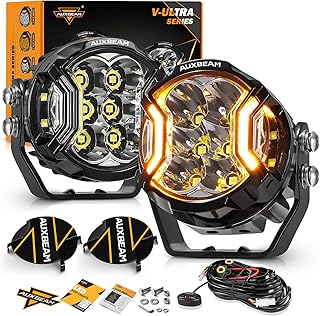
AUXBEAM
3 Inch Round Driving Lights, 108W Side Shooter Offroad Pod Lights with Amber DRL, 270° Ultra-Wide Ditch Light Hyper Spot Beam Work 3 Modes White Amber Yellow Cube Pod with Covers, Pair
4.50
(290 reviews)
CAD $219.99
FREE delivery Thu, Sep 11Or fastest delivery Tomorrow, Sep 8
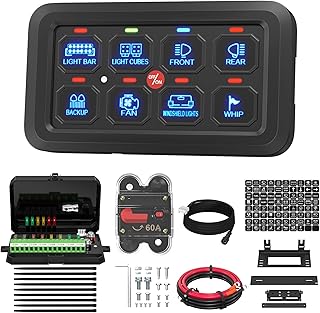
DAIERTEK
8 Gang Switch Panel RGB LED Lighted Multi-Function Switch Pod Toggle Momentary Pulsed Touch Control Switch Panel Dimmable for Car Truck ATV UTV Boat
4.30
(28 reviews)
CAD $129.99
FREE delivery Thu, Sep 11Or fastest delivery Wed, Sep 10Only 10 left in stock.
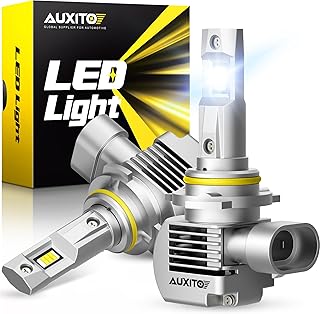
AUXITO
Upgraded 9005 LED Headlight Bulbs, 30000LM 900% Brighter 6000K White Wireless HB3 LED Headlights High and Low Beam Replacement Headlights, Plug and Play, Pack of 2
4.30
(2 reviews)
CAD $69.99
FREE delivery Thu, Sep 11Or fastest delivery Tomorrow, Sep 8
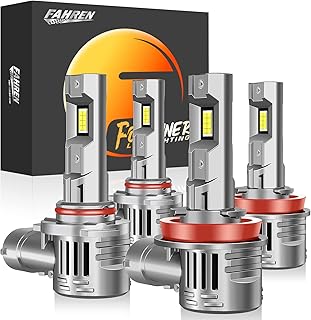
FAHREN H11 9005 LED Headlight Bulb Combo, 120,000LM 1200% Brighter HB3 H9 High and Low Beam Headlight Bulb, 6500K White with Silent Turbo Fan, Plug and Play Halogen Replacement Bulb, Pack of 4
4.30
(1 reviews)
CAD $139.99
FREE delivery Sat, Sep 13
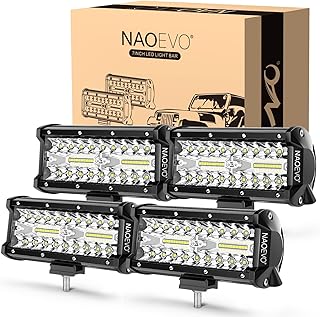
NAOEVO
7 inch LED Light Bar, 480W 48,000LM Offroad Fog/Driving Lights LED Tractor Lights with Spot Flood Combo Beam, Waterproof LED Work Lights for Truck Boat ATV UTV, 4 Pcs (White)
4.50
(390 reviews)
CAD $65.99
FREE delivery Thu, Sep 11Or fastest delivery Tue, Sep 9
